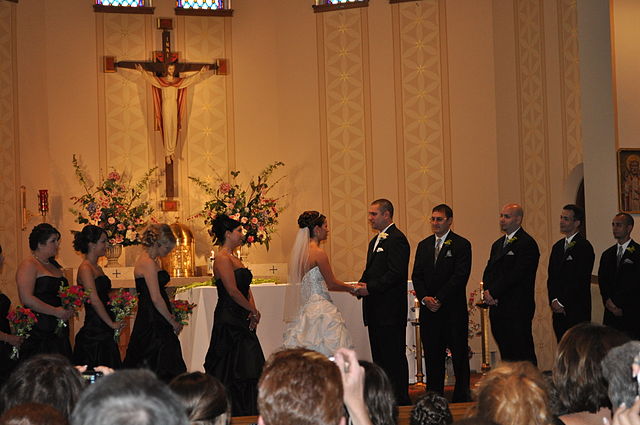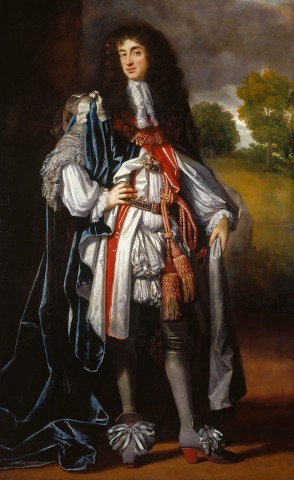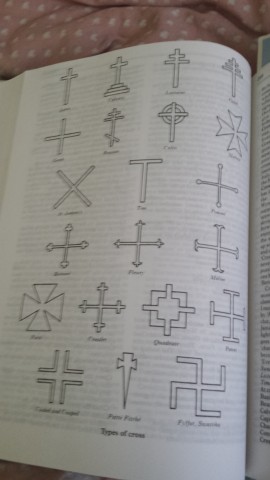Yay! I finally finished the C section in Brewer’s Dictionary of Phrase and Fable. At 127 pages, it’s the longest letter. I’m still only about 23% of the way to completion, but that’s pretty good for February! Here are some interesting things I encountered in C:
Candidate: … Those who solicited a high office among the Romans, such as that of consul, dressed themselves in a loose white robe. It was loose so that they could show the people their scars…
Elections would be a whole lot more exciting if it was all about comparing scars! Although I guess they’re already like that, metaphorically.
Cardigan: A knitted jacket or sweater with buttons up the front, named after the 7th Earl of Cardigan (1797-1868), who led the Light Brigade in the charge of Balaclava.
What a way to be remembered.
Brewer’s sometimes likes to tell you etymology, although it’s not the OED. I assume the editors only include word origins when they think they’re poetic and interesting, like:
Cemetery: The proper name of the word is “sleeping place” from the Greek Koimeterion, “dormitory.” The Persians call their cemeteries “the cities of the silent.”
Cento: (Latin, ‘patchwork’) Poetry made up of lines borrowed from established authors, an art freely practiced in the decadent days of Greece and Rome… An example of a stanza from a modern cento, with lines taken from 19th-century poets, is the following:
I only knew she came and went (Lowell)
Like troutlets in a pool; (Hood)
She was a phantom of delight (Wordsworth)
And I was like a fool. (Eastman)
Basically, I’ve discovered ancient sampling.
Chamberisms: Such may be called the idiosyncratic definitions that have regularly appeared in the various editions of Chambers Dictionary… the following remain in the 1998 edition:
he-man: a man of exaggerated virility, or what some women consider to be virility
jaywalker: a careless pedestrian whom motorists are expected to avoid running down
middle-aged: between youth and old age, variously reckoned to suit the reckoner
Judgmental reference sources are the best! Brewers can be pretty judgey itself sometimes.
Charivari: A French term for an uproar caused by banging pans and kettles and accompanied by hissing, shouting, and the like to express disapproval, especially at an unpopular wedding
The emphasis is mine because what??
Also, there’s this list, of everything bad that’s ever happened to a king named Charles. Thanks, Brewers.
Charles: Many rulers bearing this name have been afflicted with misfortune:
England:
Charles I was beheaded
Charles II lived long in exile
Charles Edward Stuart, the Young Pretender, died in povertyFrance:
Charles II, the Fat, reigned wretchedly, was deposed, and died in poverty
Charles III, the Simple, died a prisoner
Charles IV, the Fair, reigned six years, married three times, and outlived all his children except one daughter, who was forbidden by the Salic Law to succeed to the crown
Charles VI, the Foolish, went mad
Charles VII starved himself to death, partly through fear of being poisoned and partly because of a painful and incurable abscess in the mouth
Charles VIII, the Affable, accidentally smashed his head against the lintel of a doorway and died in agony at the age of 28, leaving no issue
Charles IX died at the age of 24, stricken with remorse for the part he had taken in the St. Bartholomew’s Day Massacre
Charles X spent a quarter of a century in exile, and after less than six years on the throne, fled for his life and died in exile
Charles the Bold of Burgundy lost his life at Nancy when he was routed by the SwissNaples:
Charles I lost Sicily and experienced many disasters
Charles II, the Lame, was in captivity at the time of his father’s death
Charles III, his great-grandson, was assassinated at the age of 41
Also, apparently 18th-century Italy decided that husbands were necessary but so not fashionable.
Cicisbeo: The escort or lover of a married woman, especially in 18th-century Italy. At that time, it was unfashionable for a husband to associate with his wife in society or in public, and she was therefore accompanied by her cicisbeo.
I knew about the claque, which is basically the theater version of a laugh track, but I didn’t know there were so many specialties within it:
Claque: A body of hired applauders, as at a theater… The manager ordered the required number of claqueurs and divided them into groups. There were the commissaires, who committed the play to memory and noisily pointed out its merits, the rieurs, who laughed uproariously at the jokes, the pleureurs, mainly women, who held their handkerchiefs to their eyes during the emotional scenes, the chatouilleurs, who kept the audience in good humor with their quips and gestures, and the bisseurs, who cried bis (encore).
How great a job would this be? Anyone wanting to pay me to attend their show and react dramatically, just give me a call.
Plus, it turns out, everyone afraid of clowns is completely justified:
Clown: … [the standard appearance] is probably a relic of the Devil as he appeared in medieval miracle plays.
Also, very occasionally, Brewer’s will have illustrations:
I’ve already made a start on D! It’s only the 10th longest letter, with 63 pages, so I’m hoping it won’t take me as long!





